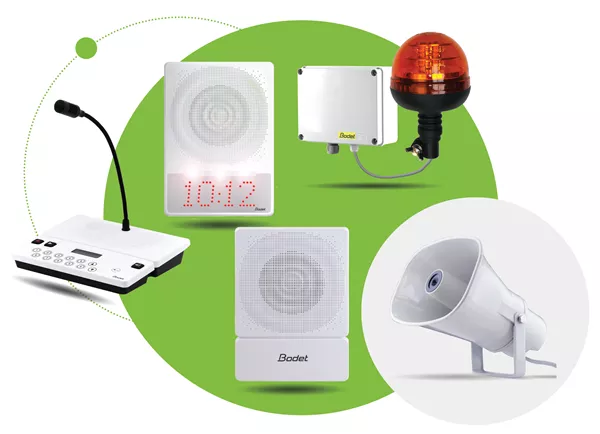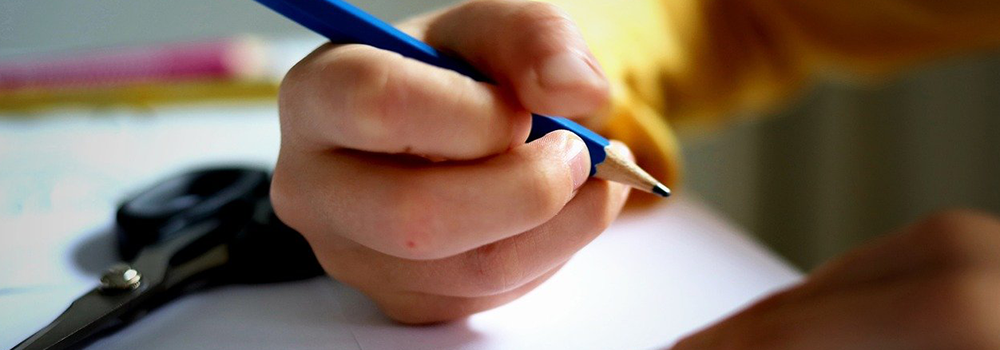It goes without saying that schools have a duty to both pupils and staff to provide the best security possible.
Part of this duty is to have an effective lockdown system in place. Because emergency events are random, schools can do little to prevent them – but they can control how they respond.
Furthermore, with the proposed introduction of Martyn’s Law later this year, any building with a capacity of 200+ is required, by law, to have a lockdown system, including all educational settings.
An effective lockdown system can help deal with anything from an intruder to a fire. It can even help secure an area in case of a medical emergency.
To ensure safety for all, particularly vulnerable pupils with specific needs to account for, a lockdown procedure must follow clear instructions, communicated effectively. Crucially, when an alert is activated, all staff and pupils must locate to the safest place, whether within the premises or remaining in the same place. This procedure must be practiced regularly to ensure everybody’s safety and to reduce panic should a real situation arise. This is particularly important for vulnerable children who may be unsettled by a change of routine.
Clear communication accounts for all types of learner, whether visually or auditorily impaired or with a specific learning difficulty. Bodet Time’s Lockdown Solutions, can trigger alerts instantaneously across multiple buildings on site. A pre-recorded text display can be presented, along with a verbal message to save time and improve the needed sense of calm. As a lockdown may need to be triggered from any location, our systems have a trigger button that is activated via a control box or with additional options of remote activation from a PC or smartphone should the event take place outside; particularly important when children with Special Educational Needs and Disabilities (SEND) are with a 1:1 Learning Support Assistant and could be located in various places across the premises. In these situations, everyone present must find the safest place away from visibility.
But what is an effective lockdown system?
Too often, schools take a blanket approach to implementing their lockdown procedures. Traditional systems like a generic bell, locking doors, and simple evacuation and invacuation instructions are common.
It can lead to confusion when the same alert is triggered for a fire alarm as other types of alert, including lockdown. Pupils and staff are left not knowing how to respond.
This is especially problematic for pupils with SEND, such as those on the Autistic spectrum or suffering from anxiety. Sudden loud noises may cause distress and result in pupils having a panic attack, an outburst of difficult behaviour or entering a flight, fight or freeze response; all contributing to challenges in an emergency.
An effective system tailored to your pupils is more than just an alarm and should be distinguished to support pupils with SEND. There’s plenty to consider.
A lockdown procedure may also include reducing the visibility of everyone concerned by closing curtains and turning off lights, whilst remaining silent, still and unnoticeable. The Senior Leadership Team must take a register to ensure safety for all staff and children by knowing that they accounted for.
Train Your Staff
Firstly, reflect inwards. Can your staff manage your students once a lockdown alert has been broadcast?
It may seem simple during a practice, however, under pressure, things can quickly go wrong. Consider how you are training your staff to deal with students, especially those with specific needs. Many schools practice their lockdown procedures, but staff training should involve more than what to do next.
For example, in 2021, Public Health England launched a Psychological First Aid Training course to help teachers provide practical and emotional support to pupils who are vulnerable to crises.
Consider part of lockdown preparation to include training staff to identify signs of distress in vulnerable students. This will enable them to be better able to manage pupils during a lockdown crisis.
Personalise Plans for Your Students
A study in the United States found that school lockdowns can increase stress by 42% for school pupils.
Pupils with disabilities and mental health problems will require specific adaptions to help them deal with emergencies. A generic alarm and subsequent instructions can often result in confusion or worry.
By working with parents, pupils, and their carers, you can create a customised set of procedures that works for them. Keeping parents up to date and informed will reduce their concern and support a better relationship.
It’s all about being flexible and creating an individualised plan and adaptions to help in a lockdown situation.
Look at your Tech
When adapting to pupils with disabilities, it’s easy to overlook the alarm itself. Consider that if a pupil is sensitive to loud noises, a constant blaring bell or alarm can quickly overwhelm them.
Modern lockdown solutions are different and incorporate customised features instead the traditional generic alarm.
This means you can adapt your lockdown alerts to your pupils’ needs and consider vulnerabilities.

How can Bodet Time support you?
Our lockdown alert system can be fully customised to suit the needs of your pupils.
The Harmonys range has the option of different types of melodies or the possibility of using your own; all broadcasting individual volumes in each zone allocated across your premises. A gentler approach may be to pre-record a calming message from a familiar member of staff to reduce the risk of distress.
Creating different zones within your premises also allows for sounders to be turned off and alternatives used in areas with particularly sensitive children.
Having the option of a written text display, allows a soundless alert as well as a personalised message to be displayed, such as ‘lockdown’ or a coded word that may be less stressful.
We prioritise adapting to pupil’s needs. If you want to learn more about how our system can support your lockdown procedures, please email us at enquiries@bodet-time.co.uk or call us at 01442 418800.



